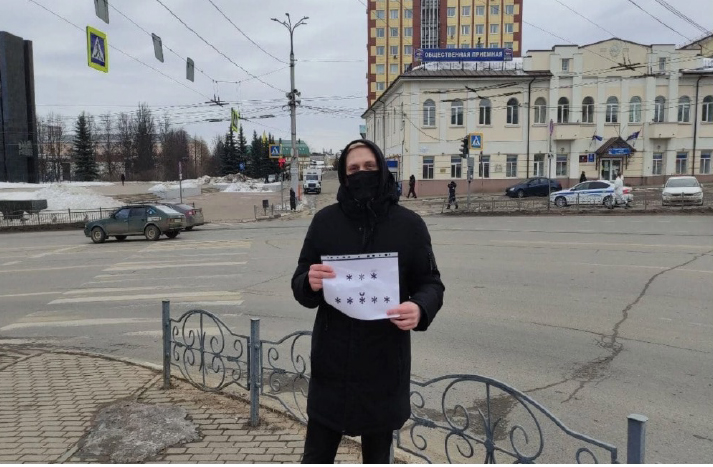June 2, 6. p.m.
Public Lecture
Vera Dubina (Bremen / Berlin)
The Weapons of the Weak. Silent Protest in Russia
Since the start of the war we have seen individual acts of “disobedience” and condemnation of military actions – writings on fences, substitution of price tags in shops with information about civilian casualties in Ukraine, coded “no war” writings on social networks and other “public” spaces. For these individual actions, both fines and prison sentences are also imposed. However, these methods of “disobedience” have not ceased, but have only intensified. To see them as political protest requires broadening our conception of what we understand as ‘politics’, extending this beyond political parties and political institutions and linking it to the myriad microsocial interactions that take effect in people's everyday lives.
In my lecture, I’m going to examine the various forms of protest – focusing on the less visible, and consequently requiring closer examination, ‘silent’ forms of resistance to the regime in contemporary Russia. Since these ‘everyday forms of resistance’ were theorized by James C. Scott, they have been given different names, including ‘non-violent’, ‘unarmed’, ‘peaceful’ or ‘passive’, depending on the aspects that were emphasized at each particular time. This kind of protest refers to small acts of dissent that were generally individual, spontaneous and unarmed and that took place in spaces of everyday socialisation. What they do is no more than words or symbols, but are not insignificant, because they demonstrate disaccord with the powers that be.
Moderator: Vera Faber

Vera Dubina (Bremen / Berlin) is a Research Associate (wissenschaftliche Mitarbeiterin) at the Institute for East European History, Humboldt-Universität zu Berlin, Germany, where her position is financed by the Carl Friedrich von Siemens Stiftung München. She received her doctoral degree from the University of Samara, Russia. She was university teacher at the Moscow School of Social and Economic Studies (Shaninka), Russia, and at the University of Konstanz, Germany. Vera Dubina was fellow of the Alexander von Humboldt-Foundation, the Gerda-Henkel-Foundation, and the Max Planck Institute for History.
She left Russia immediately after the full-scale Russian invasion of Ukraine in protest and was then a Researcher at Risk of the Humboldt Foundation at the Research Center for Eastern European Studies Bremen. She publicly protests both the Russian war of aggression against Ukraine and the Russian occupation of Ukrainian territories.
Her research areas are public history, memory cultures, everyday history, and theory of history.
Literature:
Vera Dubina and Alexandra Arkhipova: “No Wobble”: Silent Protest in Contemporary Russia, in: Hidden Resistance to the Russian-Ukrainian War Inside Russia. ETH Zürich. Russian analytical digest, No. 291 (2.1.2023), p. 8-11.
Location: Sophus Lies Auditorium at UiO, Moltke Moes vei 35, UiO Blindern.
The Public Lecture is open to the public without registration.
The event takes place in the framework of the MSCA-project “Soviet Ellipses. Omissions as Techniques of Border Transgression in Photography, Literature, and Everyday Life” (SOVEL) at UiO
and
the Conference Trauma, Memory, and Counter-Culture. Borders and Border Transgressions in (Post-)Communist Europe, June 1-2, 2023, at UiO.
Contact: vera.faber@ilos.uio.no



![]()

